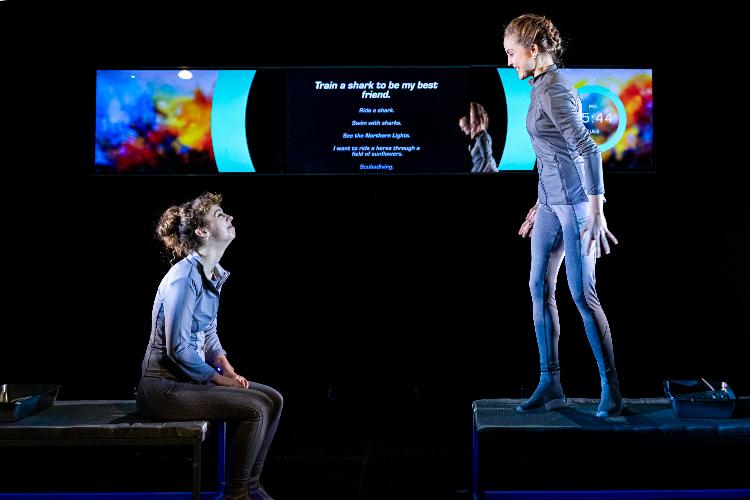Is it a surprise that utopian performance pieces are coming into fashion again? With ChatGPT and Bard having been catapulted into an artificial knowledge war, and the question of humanised technology experiencing its second coming since the Matrix’s claim to fame? The question of whether or not robotic technology does actually have feelings is unfolding across the glove.
Marlie Haco’s play has jumped on the bandwagon at exactly the right time. Through the eyes of protagonist Zara Brown (Annie Davison), the audience gets to grapple with the concept of humanised technology. Thanks to Mor2Life technology, immortal Zara has been alive for over 500 years. Thousands of hobbies and at least a dozen relationships later, she is tired of life’s offerings. Whatever dissatisfied emotions the protagonist is feeling leads her to appeal for having her Mor2Life chip removed in order to undergo - very much mortal - euthanasia to end her life.
Between counselling sessions with her personal therapist robot Alex (Olivia Barrowclough), and her blossoming relationship with a quirky guy named Joe (Sam Newton), Zara explores what it means to embrace the “selfishness” of ending your own life. Whilst Alex has a lifespan that is limited to Zara’s one-year therapy course, the question of “where do we draw the line of something being alive or not” very much hangs in the air.
Good Day is cleverly written by Daniel Bainbridge and Cam Scriven to essentially resemble an artificial intelligence conversation about the effect of human emotions. However, while leaning far into the utopian aspect of human existence 500 years in the future, the play seems to have forgotten that what makes us human is not our thoughts on mortality but also the sum of our experiences that shape us. For the protagonist that may or may not be her relationship with her estranged children or her episodes of depression, but that never becomes quite clear and merely serves the purpose of breathing some life into the introverted protagonist. One can’t help but long for a starker contrast between devoid-of-personality Zara and the just-came-to-life therapy robot Alex who barely has anything to build a personality on, to begin with, and yet seems more alive than its patient.
Luckily, futurist scene transitions featuring the odd moment of physical theatre excite distract from a lack of three-dimensionalism in Good Day’s characters. Eerie blue lights and furniture fitted with mirrors set the scene for the artificial world of Mor2Life. And in addition to dance sequences performed to abstract sound compositions (Ákos Lustyik), a horizontal LED screen makes the play accessible by captioning every conversation had between the three individuals (Dan Light). The insight into the looming digital reality of Mor2Life creates just the right ambience to imagine a triste, empty world of humans who have been doing the same thing for centuries, over and over and over again.
It runs until 12 March.
Review: Shirley Both Photo: Jake Bush

